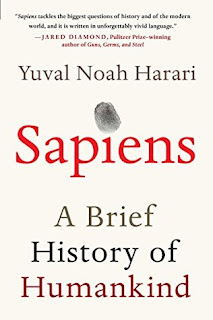Poetry Sunday: Small Kindnesses by Danusha Lameris
My older daughter brought this poem to my attention last week and it proved to be just the antidote I needed for a week of truly horrible and depressing events. As I read it, I could feel the gloom lifting just a little and leaving that crack by which the light gets in, as Leonard Cohen once wrote. I think, in the end, if there is anything that will save us as a species, it might be those small kindnesses that we do for each other; the things that we do automatically without thinking because we know in our deepest heart of hearts that they are the right things to do. Because "Mostly, we don't want to harm each other", and that sentiment may be "the true dwelling of the holy". Treasure those acts and those moments. Small Kindnesses by Danusha Lameris I’ve been thinking about the way, when you walk down a crowded aisle, people pull in their legs to let you by. Or how strangers still say “bless you” when someone sneezes, a leftover from the Bubonic plague. “Don’t ...



